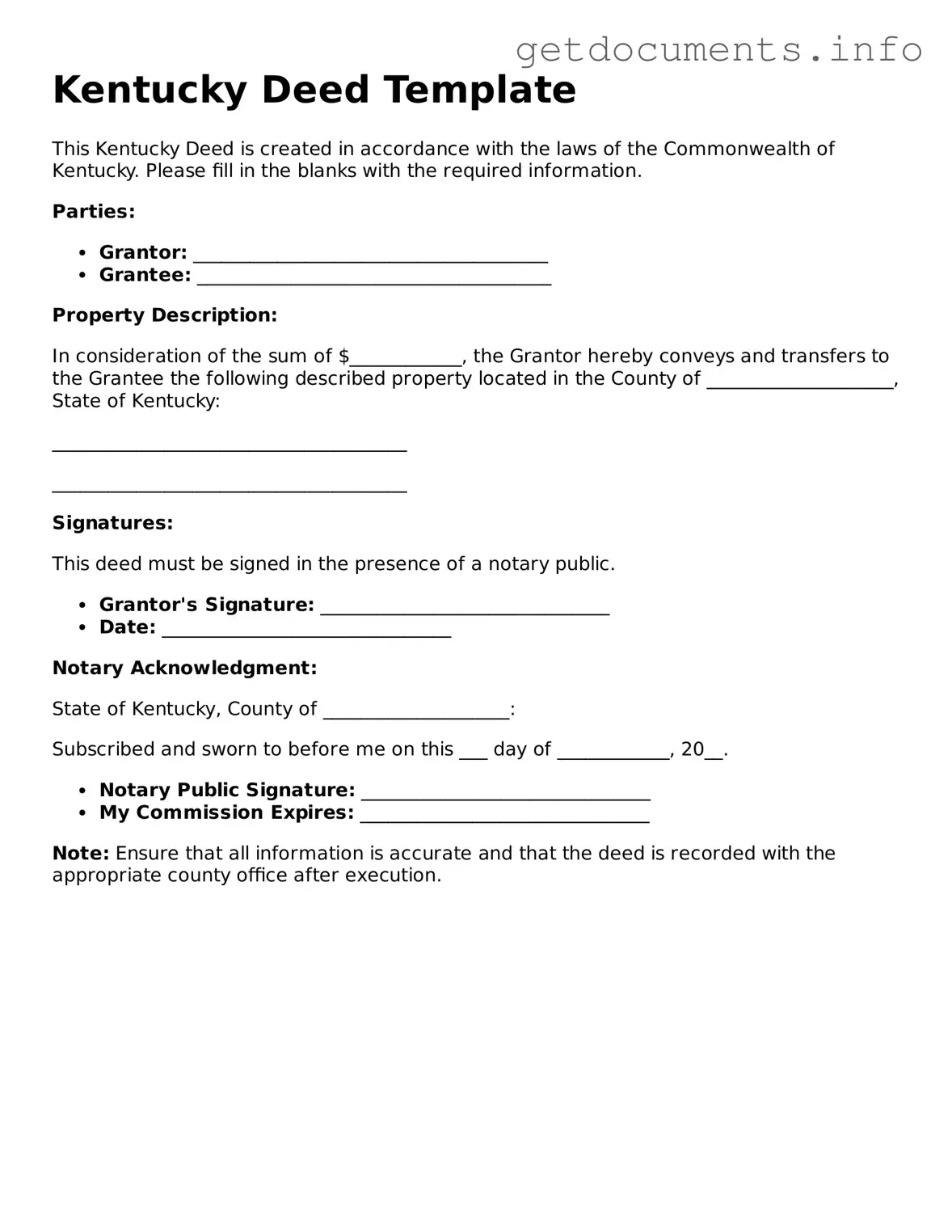Free Deed Template for Kentucky
A Kentucky Deed form is a legal document used to transfer ownership of real property from one party to another. This form outlines essential details such as the names of the parties involved, the property description, and any conditions of the transfer. To ensure a smooth transaction, it is important to fill out the form accurately and completely; click the button below to get started.
Access Deed Editor

Free Deed Template for Kentucky
Access Deed Editor
Got places to be? Complete the form fast
Fill out Deed online and avoid printing or scanning.
Access Deed Editor
or
⇩ PDF File
